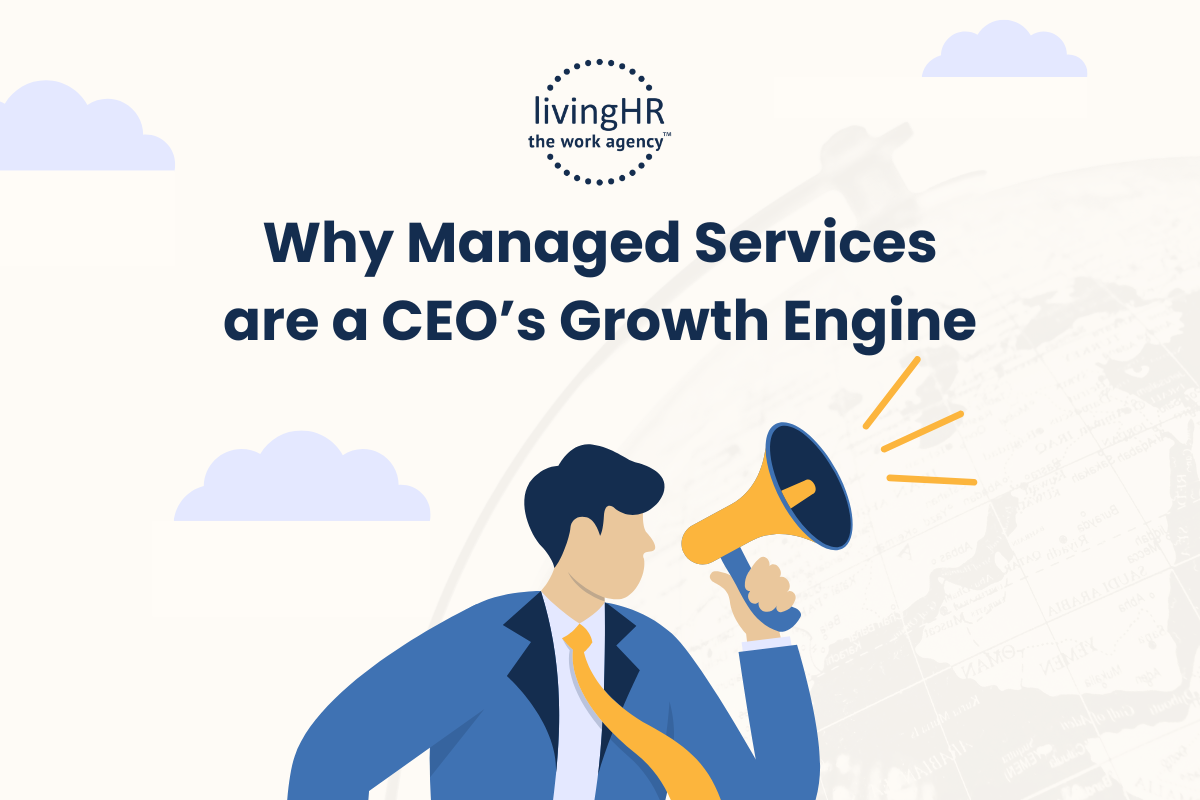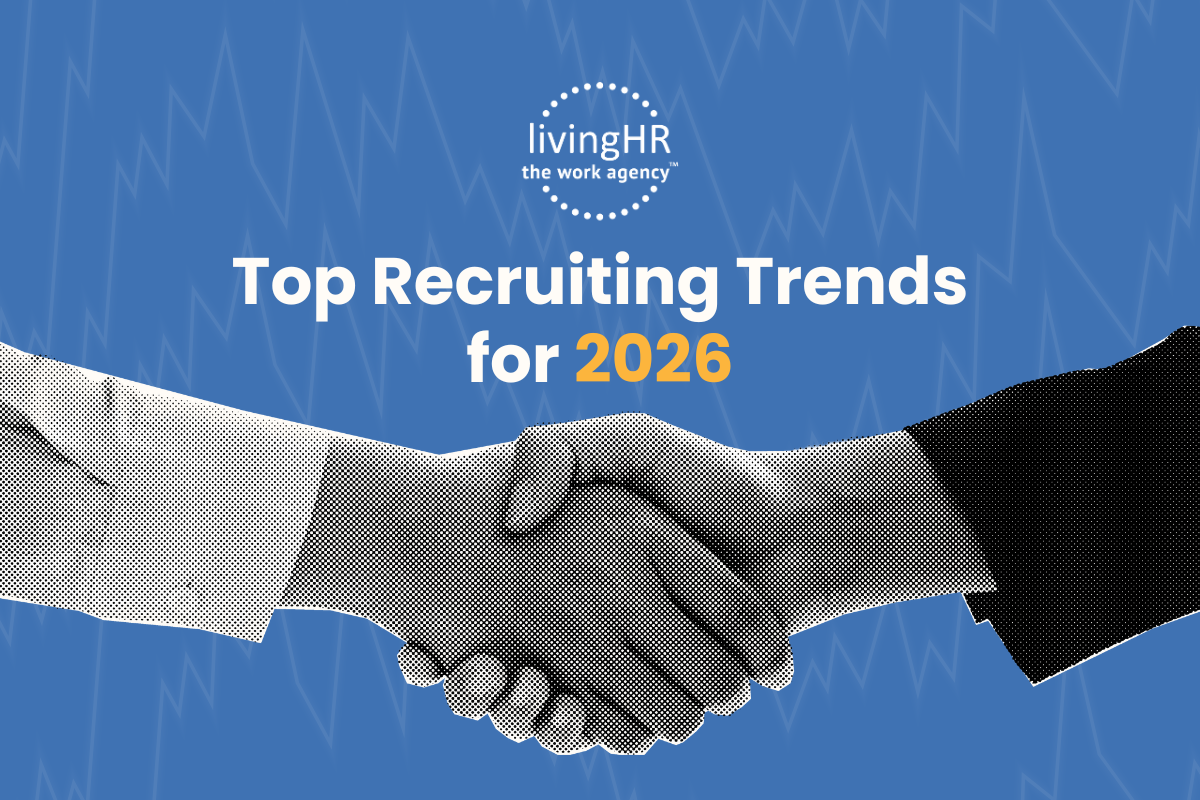As the world hurdles into an era dominated by Artificial Intelligence (AI), leadership dynamics are undergoing a profound transformation. No longer confined to the realm of technical expertise, the essence of effective leadership now hinges on a nuanced interplay between human understanding and technological innovation.
In this blog, we delve into the intricate relationship between AI and the future of work, focusing on the evolving role of people leaders. We are teaming up with our trusted partner, Dextego, to explore how AI is reshaping leadership paradigms, and more importantly, how individuals can adapt and thrive in this rapidly changing landscape.
From cultivating emotional intelligence to fostering a culture of continuous learning, we unravel the key strategies that can empower leaders to navigate the complexities of the AI-driven workplace and emerge as better people leaders in the process. Read on as we uncover the essential insights and skills necessary to lead effectively in the age of AI.
AI and Leadership
In the rapidly evolving leadership landscape, Artificial Intelligence (AI) is not just a tool but a transformative force reshaping how leaders operate. By embracing AI, leaders can augment their capabilities and adapt to the demands of the digital age more effectively.
1. Make Data-Driven Decisions
One of the most significant advantages of AI for leaders is its ability to process vast amounts of data at unprecedented speeds. With AI-driven analytics, leaders can make informed, data-driven decisions that drive organizational success. By leveraging AI-powered insights, leaders can identify trends, predict future outcomes, and optimize strategies with greater precision than ever before.
2. Develop Your Team
AI isn't just about enhancing individual performance; it's also about empowering teams to achieve their full potential. Through AI-driven tools and platforms, leaders can facilitate skill development, foster collaboration, and streamline workflows within their teams. By leveraging AI for talent development and management, leaders can ensure that their teams remain agile, adaptable, and equipped with the skills necessary to thrive in a rapidly changing environment.
3. Focus on Human-Centered Emotional Intelligence
While AI offers unprecedented analytical capabilities, the essence of effective leadership remains deeply rooted in human interactions. Emotional Intelligence (EQ) plays a crucial role in leadership, enabling leaders to understand and connect with their teams on a deeper level. In the AI age, leaders must prioritize human-centered EQ skills such as empathy, active listening, and interpersonal communication. By fostering a culture of emotional intelligence within their organizations, leaders can build trust, inspire motivation, and drive meaningful engagement among their teams.
As organizations navigate the complexities of the AI age, leaders who embrace AI while prioritizing human-centric leadership principles will emerge as catalysts for innovation and success. By leveraging AI to make data-driven decisions, develop their teams, and cultivate emotional intelligence, leaders can navigate the evolving landscape of leadership with confidence and effectiveness.
From Our Partner, Dextego
Here is what Ioanna Mantzouridou Onasi, CEO & Co-founder at Dextego had to share about AI and the future of leadership.
In a landscape where the constant buzz of technological breakthroughs meets the steady heartbeat of timeless human interaction, the tides of leadership are undergoing a seismic shift. We're not just talking about a change in strategies or management methodologies. What's brewing is a profound redefinition of what it means to lead in the age of Artificial Intelligence.
According to LinkedIn, 92% of U.S. executives believe that the most important leadership skills today are not the technical competencies but the softer "power skills." That means the ability to understand and engage people on a personal level is now more critical than it's been since spreadsheet software started appearing on every office desk.
In the realm of AI and leadership, the dichotomy lies in recognizing that while AI and machine learning can parse data at superhuman speeds and extract complex patterns, the nuanced and often unstructured domain of human interaction still holds its sacred ground. This is why empathy, adaptability, active listening, and other "soft" skills are being reconceptualized as 'power skills', in that they now wield more influence on the balance of power within a workplace, and arguably, on the world stage.
AI's Role in Skill Set Expansion
AI initiatives are steering the conversation towards harnessing a new set of skills. AI tools like Dextego can support employees in the flow of work. Dextego’s AI Coach gives access to expert coaching in a personalized way according to the employee’s goals, level of skills, company’s best practices, and proprietary expert data. Today, leaders are not asked to supervise tasks but to guide and augment the workforce's capabilities where AI falls short.
Future-Proofing Leadership in the Age of AI
To future-proof your leadership in an environment influenced by AI, it's crucial to adapt and upgrade. Here are the essential ways to ensure the compatibility of your current leadership framework with the augmentative enhancements AI can bring:
1. Cultivate Emotional Intelligence (EQ)
Since Peter Salvoy and John Mayer first defined Emotional Intelligence as “a type of social intelligence that involves the ability to monitor one’s own and others’ emotions, to discriminate among them, and to use this information to guide one’s thinking and actions,” researchers and companies have tried to demystify the art of being a “people person.” A study out of Yale revealed that emotional intelligence helps us make better decisions at work. Another study out of Harvard showed that emotional intelligence was more helpful than IQ in predicting team success.
Data has proven that emotional intelligence is a strong predictor of professional success. Although EQ is one of our biggest strengths and differentiations from machines, AI can help us develop it further. According to an article published by hbr.org and written by Daniel Limon and Bryan Plaster, “Many professional roles requiring strong communication skills, including leadership, public speaking, product management, virtual therapy, teaching, language learning, and bedside manner will benefit from AI that measures emotional intelligence.”
2. Foster a Culture of Continuous Learning
The speed at which technology develops means leaders must adopt a mindset of continuous learning for themselves and their teams. In essence, every team leader is becoming a mini Chief Learning Officer, making the role of the CLO more important than ever. Talent and Learning Leaders have the opportunity to impact the entire organization and have a strategic seat at the table. The integration of AI within teams should underline the role it plays as an 'augmentative' rather than a 'substitutive' tool. AI can help us identify core skills in our teams and support us with succession planning.
3. The Rebirth of Mentorship and Coaching
Mentorship and coaching are becoming imperative in bridging the technological and human divide. Dr. Chris Patel, an executive coach focusing on AI leadership, notes, "Mentoring won't just be about sharing experience, but also the digital proficiency of tomorrow's tools. And to coach for AI, you also need to have been coached with AI."
4. Building Trust in an AI-Powered Era
Trust in leadership has always been vital. Now it's about inspiring trust in how AI is used, how data is handled, and how decisions are influenced. Working with Ethics Experts and upskilling yourself by reading, attending webinars, and conferences regularly as technology moves extremely fast nowadays will be important.
Book your free demo with Dextego here
Navigating the AI-Fueled Future: Empowering Leadership for Tomorrow's Challenges
AI is not just a technological revolution; it's a cultural and economic one. Its integration into the leadership narrative prompts a redefinition of roles, skills, and expectations. The leaders of today and especially tomorrow must stand at the helm, not just of their organizations, but of this cultural transformation.
Leading with AI is a call to action, an invitation to evolve. It demands not just cognitive prowess but emotional depth, not just strategic acumen but ethical fortitude. It's an era where the most successful leaders will not be those who fear or resist AI, but those who harness its power to amplify the most profound and crucially human aspects of their roles.
Therefore, our parting message to People Leaders is this: as AI ascends, lead with empathy, guide with intention, and thrive through learning. The future of work is not just about the future of technology; it's about the future of humanity that technology, in its most altruistic sense, can enhance. Lead on, and lead well. It's not about replacing you with an algorithm, it’s about empowering you to lead as never before.







